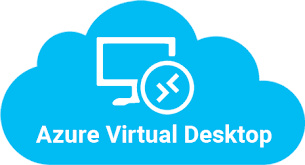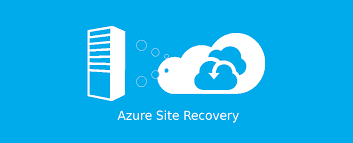Microsoft Azure & Stack, M365 Solutions
Microsoft Azure, commonly referred to as Azure, is a cloud computing service created by Microsoft for building, testing, deploying, and managing applications and services through Microsoft-managed data centers.
Azure Virtual Machines are cloud-based instances of a virtualized operating system. They allow you to run various operating systems, including Windows Server, Linux, and others, in a scalable and flexible manner. Azure Virtual Machines are scalable, on-demand computing resources provided by Microsoft Azure. Here are some key features of Virtual Machines:
• Deployment Options
• Scalability
• Operating System Support
Azure offers a range of storage services to cater to various data storage needs. These services are designed to provide scalability, durability, and flexibility for storing different types of data. Here are some key Azure storage services:
• Blob Storage
• File Storage
• Queue Storage
• Table Storage
• Managed disk
Azure provides a variety of database services to cater to different data storage and management needs. These services are designed to be scalable, highly available, and managed by Azure, reducing administrative overhead. Here are some key Azure database services:
• Azure SQL Database
• Azure Cosmos DB
• Azure Cache for Redis
• Azure Database for MySQL
• Azure Database for PostgreSQL
Azure Networking Services play a crucial role in creating secure and reliable network environments for your cloud-based applications and services.
They provide the foundation for building scalable and resilient architectures in the Azure cloud.
• Virtual Networks (VNet)
• Load Balancers
• Application Gateway
• Azure Firewall
Azure Networking and Security services provide a comprehensive suite of tools and features to build secure and robust cloud environments, ensuring the protection and performance of your applications and data.
SAP on Azure(SAP HANA & B1)
SAP on Azure, is a cloud-based solution offered by Microsoft to help businesses run their SAP applications and services in a secure, scalable, and innovative environment. Here are some key details about SAP on the Microsoft Cloud as per the provided webpage
Overview :
SAP on Azure allows you to extend your SAP applications and innovate in the cloud, leveraging the trusted Microsoft Azure platform. It's designed to enhance the performance and capabilities of SAP systems while providing various benefits.
Collaboration with SAP :
Microsoft and SAP have collaborated to provide a collaborative cloud experience. This collaboration allows you to combine mission-critical data and make better decisions by working together in the cloud with your SAP systems, Microsoft Teams, and Outlook
Benefits :
• Immediate and Intelligent Insights: SAP on Azure offers tools and services to gain immediate and intelligent insights from your SAP data.
• Enhanced Productivity and Innovation: It helps enhance productivity and innovation within your organization.
• Leading Cloud Platform for SAP: Microsoft Azure is considered a leading cloud platform for SAP workloads.
• Data Security: Microsoft Azure provides unmatched security to help protect your data.
• Speed and Modernization: You can speed up your operations, break down data silos, and modernize your SAP applications.
Deployment Options :
SAP on Azure offers various deployment options, including deploying natively on Azure with a guided experience or considering Azure for RISE with SAP to boost agility and security with cloud services.
Data Integration :
It allows you to combine SAP and non-SAP data for predictive analytics and visualize and share data using tools like Microsoft Power BI, Qlik, Tableau, and SAP Fiori for real-time decision-making.

Azure Virtual Desktop (AVD)
• Azure Virtual Desktop is a cloud-based desktop virtualization service offered by Microsoft Azure.
• It allows organizations to deploy and manage Windows virtual desktops and applications in the Azure cloud.
• AVD provides flexibility and scalability, enabling remote access to desktop environments from various devices.
Azure Site Recovery
• Disaster Recovery refers to the process of planning for and recovering from unexpected events or disasters that could disrupt business operations.
• In the context of IT infrastructure, DR typically involves creating backup systems and procedures to ensure data and applications can be restored in case of a disaster.
• Cloud-based solutions, including Azure, offer options for disaster recovery to enhance data resilience and minimize downtime

Azure Stack
Azure Stack is a hybrid cloud service that extends Azure infrastructure, services, APIs, and management tools to your on premises environment. This allows you to run Azure services alongside your existing on-premises workloads, without having to rearchitect your applications. Azure Stack offers a variety of services, including:
Compute
Azure Stack offers a variety of compute options, including virtual machines, containers, and Kubernetes.
Storage
Azure Stack offers a variety of storage options, including blob storage, file storage, and data lake storage.
Networking
Azure Stack offers a variety of networking options, including virtual networks, ExpressRoute, and VPNs.
Security
Azure Stack offers a variety of security features, including encryption, access control, and threat protection.
Here are some examples of how Azure Stack is being used by businesses:
- A financial services company is using Azure Stack to run its trading platform on-premises. This ensures that the platform hasthe low latency and high availability it needs to trade stocks and other financial instruments.
- A healthcare company is using Azure Stack to store patient data on-premises. This helps the company comply with regulations that require patient data to be stored in a secure location.
- A manufacturing company is using Azure Stack to extend Azure services to its factory floor. This allows the company to collect data from sensors and machines on the floor and use it to improve its operations.
If you are looking to extend Azure to your on-premises environment, Azure Stack is a good option to consider. It offers a variety of services and features that can help you run your applications and workloads on-premises with the same consistency and reliability as you get in the cloud.
